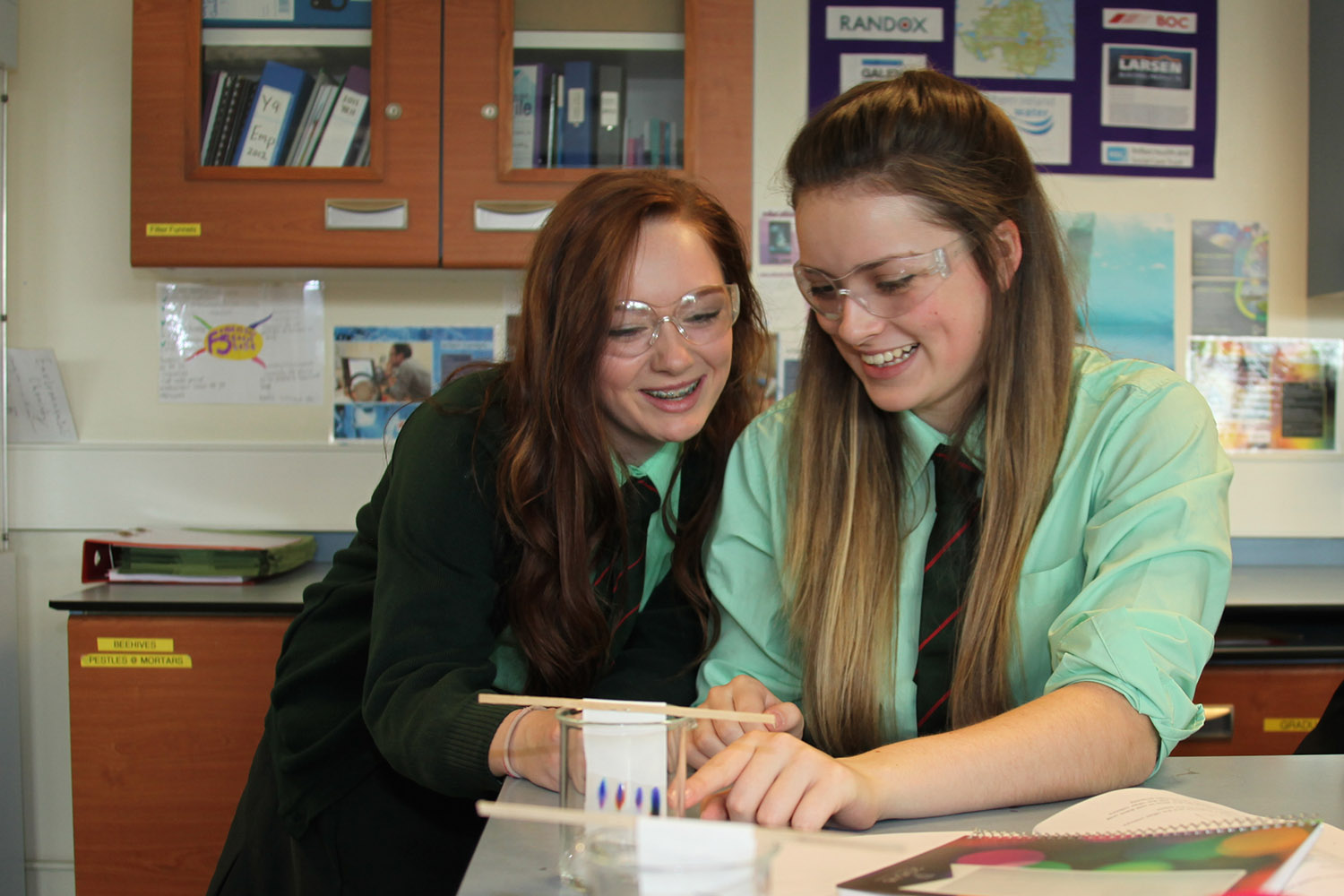Chemistry
Staff
Head of Department:
Miss K Edgar
Subject Teachers:
Miss E Green
Dr S Collins
Mr N Purvis
Mr M Vance
Technician:
Mrs J Heasley
Why Study Chemistry?
Chemistry is often referred to as the ‘central science’ because it bridges the physical sciences with life sciences and applied disciplines such as medicine, engineering, and environmental science. it helps students understand the material world - from atomic interactions to the development of new medicines and sustainable technologies.
Learning about Chemistry is both stimulating and fun. Not only does it help us make sense of the world around us, but Chemistry also touches upon the main social, ethical and cultural issues affecting our lives today.
We all experience chemical reactions daily: whether it is breathing, baking a cake or driving a car. Studying chemistry helps explain these and many other interactions, enabling us to analyse all the associated elements and the compounds they form.
Given its close links with physics, biology and maths, chemistry also provides a wide-reaching base of scientific knowledge and brings with it great career opportunities in science, industry and commerce.
Studying Chemistry fosters:
Analytical and critical thinking
Problem-solving and data interpretation
Practical laboratory skills
An understanding of how science impacts society and the economy
Whether you’re intrigued by the composition of everyday materials or passionate about tackling global challenges, Chemistry offers a rich and rewarding academic journey.
Aims
To stimulate and sustain curiosity, enthusiasm, and interest in Chemistry through engaging hands-on learning.
To provide a coherent and enriching educational experience that builds a strong foundation in chemical principles and their real-world applications.
To encourage the thoughtful application of chemical knowledge in everyday life and global contexts.
To develop safe and effective practical skills, alongside accuracy, precision, and scientific integrity.
To foster communication, teamwork, and independent thinking through scientific inquiry.
To promote environmental awareness and understanding of Chemistry’s role in sustainable development.
To enable students to interpret, organise, and evaluate scientific date critically.
to explore the socio-economic, cultural, ethical, and technological dimensions of Chemistry in today’s world.
To prepare students for further study and careers in science, healthcare, engineering, and related fields.
GCSE
Pupils study the CCEA Chemistry specification. This specification consists of three units:
Unit 1: Structures, trends, chemical reactions and analysis
Unit 2: Further chemical reactions, organic chemistry and materials
Unit 3: Practical skills
Units 1 and 2 are externally assessed written examinations consisting of a number of compulsory structured questions that provide opportunities for short answers, extended writing and calculations. Unit 3 is an externally assessed practical skills unit in two parts: Booklet A and Booklet B. Booklet A has two practical tasks based on the prescribed practicals. Booklet B is a timetabled, externally assessed exam taken at the end of the final year of study. It consists of questions about planning and carrying out any of the prescribed practicals, as well as more general questions about any practical situation that arises from the specification.
The course supports progression to A Level Chemistry.
A Level
A-level Chemistry builds upon the knowledge gained at GCSE but goes much further revealing some significant simplifications taught at GCSE. It contains a slightly greater level of mathematical content and overlaps with some topics taught in physics. By taking chemistry you develop some very useful skills that can be applied well outside of the subject discipline; these include problem solving, numeracy, practical skills as well as developing a broad scientific background. As a result it's a highly respected and useful qualification for higher education and employment in a wide range of areas.
A Level Chemistry is offered in two parts: AS and A2, which together form the full GCE qualification.
AS Units:
AS 1 : Basic Concepts in Physical and Inorganic Chemistry
AS2 : Further Physical and Inorganic Chemistry and Introduction to Organic Chemistry
AS3 : Basic Practical Chemistry
A2 Units:
A2 1 : Further Physical and Organic Chemistry
A2 2 : Analytical Chemistry, Transition Metals, Electrochemistry and Organic Nitrogen Chemistry
A2 3: Further Practical Chemistry
Pupils study the CCEA GCE Chemistry specification. This specification encourages students to:
Develop interest, enthusiasm, and curiosity about Chemistry, including its relevance to further study and careers.
Gain essential knowledge and understanding of key chemical principles and how different areas of Chemistry interconnect.
Appreciate how scientific understanding informs societal decisions and contributes to economic and social progress.
Build advanced practical and analytical skills, with an emphasis on safety, accuracy, and precision.
Strengthen mathematical and problem-solving abilities through chemical contexts.
Develop communication, teamwork, and independent thinking skills.
Understand the societal, ethical, cultural and technological relevance of Chemistry in today’s world.
Interpret, organise, and evaluate scientific data effectively.
Engage in scientific inquiry and develop a deeper appreciation of how science works.
Careers
Studying A Level Chemistry opens a wide range of exciting and rewarding career opportunities. Recognised as a challenge and rigorous subject, Chemistry is highly respected by universities and employers alike. It demonstrates strong analytical thinking, problem-solving ability, and academic discipline - qualities that are valuable across many fields.
Careers
Chemistry is essential for careers in healthcare, including Medicine, Pharmacy, Dentistry and Veterinary Science. It also plays a key role in scientific and technical fields such as:
Biochemistry
Pharmalogy
Microbiology
Forensic Science
Food Science and Nutrition
Environmental Science
Chemical and Materials Engineering
Nursing
Physiotherapy
Radiography
Paramedical roles
Scientific Research and Academia
Zoology
Additionally, Chemistry is valued in broader disciplines such as Accountancy, Law and Teaching and Education.
Chemistry graduates are highly sought after for their scientific expertise and transferable skills, including critical thinking, data analysis, and precision, making them well-equipped for a wide variety of career paths.



